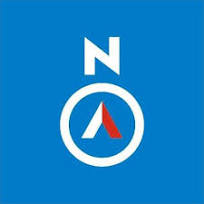Browse transcripts » National Archives / Archives South Holland
Summary (also from the previous page)
On 14 April 1777, approval was requested for the assignment of a task to the Rembang Resident. Additionally, 3 rampaarden (battering rams) were ordered to be made locally.
The residents of Balemboangang were asked to provide the following contributions:
- 50 pieces of grapes filled with lead weighing 1 pound
- 3 bundles of fuse
- ½ ream of cardboard paper
- 2 pieces of grenadier weapons
- 2 curved sabers with copper fittings and sheaths
- 1/15 barrel of sharp snaplock cartridges
- 4 pieces of pikes
- 1 Company flag
- 4 pieces of flints
Transcription
den 14=e April 1777.
E
Aan Hang Boeijko is Pana„
„roekan in huur gelaten
„paalde somma,
En onder zeeker mits.
ook de zout Negorij Pinger
bapas afgestaan.
des Eerstgeteekendens voordragt, de berarmde jnwoon„
„ders van ooster-Balemboangang, voor nog twee Jaaren
of voor het teegenwoordige Jaar 1777. en het volgende
1778, gelieven vrij te laaten van alle contributien, ons
tot narigt strekkende, hebben wij ook door de soura„
„baijasche bediendens, den Regent van dat district
en zijn onderhoorige doen aankundigen, terwijl wij
geensints twijffelen, of dit zal zoo wel tot opbeuring van
dese arme Lieden strekken, als verdere bevolking van
het land veel contribueeren
Ingevolge uwer Hoog Edelheeden veel g'eerde qualificatie, is
aan den Capitain der Chineesche natie te sourabaija Hang
Boeijko, het Landschap Panaroekan, in huur gelaten, voor
voor zeekere tijd en be„ de tijt van nog 5. Jaaren, ingegaan primo Januarij passato,
om te eindigen ultimo December 1781. voor 500. Spaanse
Reaalen in 't Jaar, en mits de vaste bezetting in de ben„
„ting daar, zonder betaling fourneerende, het ordinaire
Randzoen van Rijst, olij en zout, mitsgaders voorziende
van het nodige brandhout en water.
E
Aan Jang Boeijkeois als even n dewijl uwe Hoog Edelheeden ons bij missive van den
27 December 1776, hebben gelieven te demandeeren, om den
Capitain der Chineesen te Sumanap Tjong Hensaaij,
op zijn versoek, om van den regent aldaar in huur
te moogen hebben, de dessa Pinger Pappas, de dessa
Tanjong
te
E
Aan Hang Boeijko is Pana„
„roekan in huur gelaten
„paalde somma,
En onder zeeker mits.
ook de zout Negorij Pinger
bapas afgestaan.
des Eerstgeteekendens voordragt, de berarmde jnwoon„
„ders van ooster-Balemboangang, voor nog twee Jaaren
of voor het teegenwoordige Jaar 1777. en het volgende
1778, gelieven vrij te laaten van alle contributien, ons
tot narigt strekkende, hebben wij ook door de soura„
„baijasche bediendens, den Regent van dat district
en zijn onderhoorige doen aankundigen, terwijl wij
geensints twijffelen, of dit zal zoo wel tot opbeuring van
dese arme Lieden strekken, als verdere bevolking van
het land veel contribueeren
Ingevolge uwer Hoog Edelheeden veel g'eerde qualificatie, is
aan den Capitain der Chineesche natie te sourabaija Hang
Boeijko, het Landschap Panaroekan, in huur gelaten, voor
voor zeekere tijd en be„ de tijt van nog 5. Jaaren, ingegaan primo Januarij passato,
om te eindigen ultimo December 1781. voor 500. Spaanse
Reaalen in 't Jaar, en mits de vaste bezetting in de ben„
„ting daar, zonder betaling fourneerende, het ordinaire
Randzoen van Rijst, olij en zout, mitsgaders voorziende
van het nodige brandhout en water.
E
Aan Jang Boeijkeois als even n dewijl uwe Hoog Edelheeden ons bij missive van den
27 December 1776, hebben gelieven te demandeeren, om den
Capitain der Chineesen te Sumanap Tjong Hensaaij,
op zijn versoek, om van den regent aldaar in huur
te moogen hebben, de dessa Pinger Pappas, de dessa
Tanjong
te


Source citation
National Archives / Archives South Holland, archive number 1.04.02, Inventaris van het archief van de Verenigde Oost-Indische Compagnie (VOC), 1602-1795 (1811), inventory number 3497, Heren Zeventien en kamer Amsterdam, INGEKOMEN STUKKEN UIT INDIË, Overgekomen brieven en papieren, Overgekomen brieven en papieren uit Indië aan de Heren XVII en de kamer Amsterdam, Overgekomen brieven en papieren uit Indië aan de Heren XVII en de kamer Amsterdam, 1778. Zevenentwintigste boek: Batavia's ingekomen brievenboek, deel VII: Java's Oostkust
Artificial Intelligence (AI)
The transcription was made by computer via automatic handwriting recognition.
The summary is created by the computer based on a language model.
Both artificial intelligence tasks are not perfect, but often more than sufficient so that the historical document becomes understandable.
The summary is created by the computer based on a language model.
Both artificial intelligence tasks are not perfect, but often more than sufficient so that the historical document becomes understandable.

